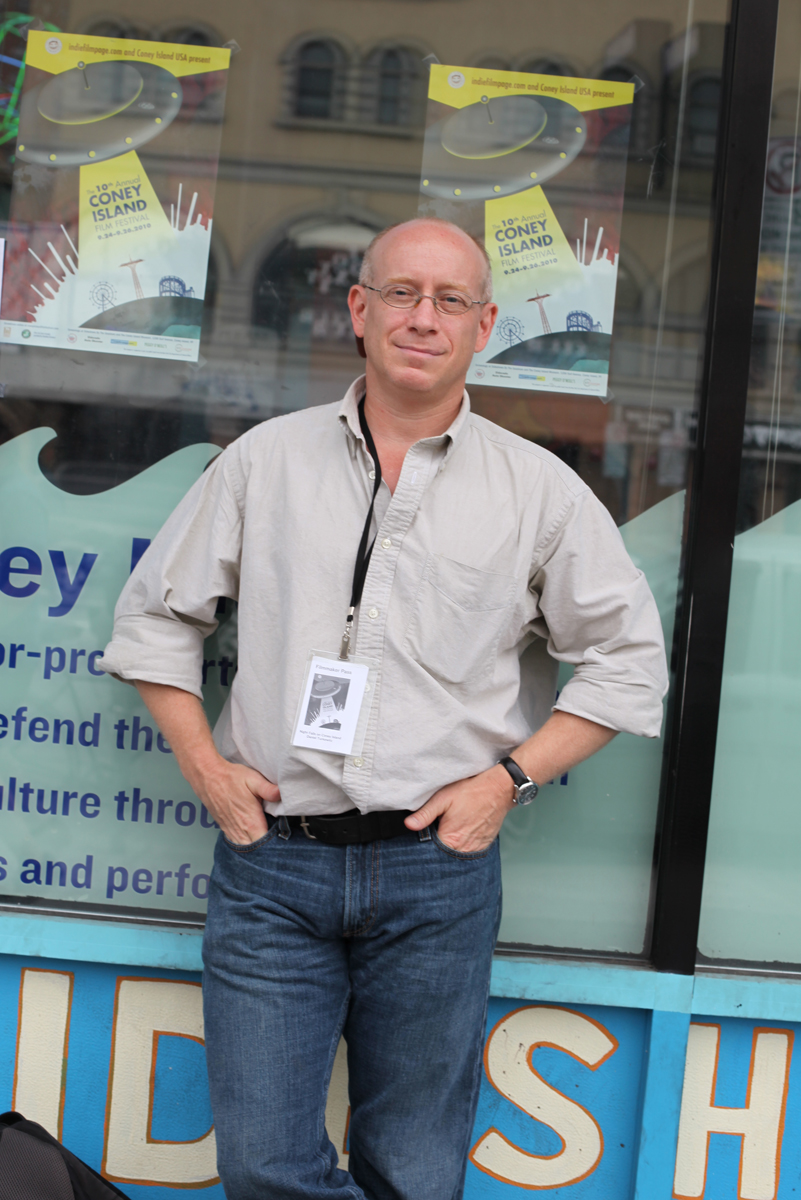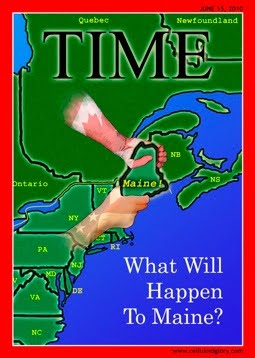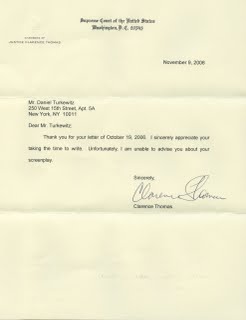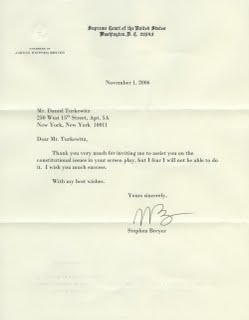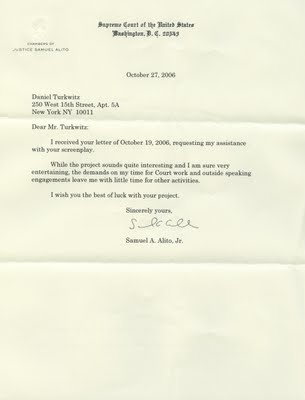 How many different ways are there to say “Wow!”?
How many different ways are there to say “Wow!”?
You know how I’ve written about my screenwriter brother a few times?
Like the time Justice Antonin Scalia gave him advice on a script? Like the time he took top prize in a screenwriting competition?
Well, breaking into Hollywood may be tough, but — you sittin’ down? — yesterday he sold his sci-fi space script, Tranquility Base, which one writer describes as “Lord of the Flies in Space.” It is now owned by:
Sir Ridley Scott and 20th Century Fox.
You read that right. Sir. Ridley. Scott. As in Aliens, Thelma and Louise, Black Hawk Down, and Gladiator. And the legendary Apple Mcintosh commercial 1984, and a boatload of other things.
Yeah, that Sir Ridley Scott, whose name you can now write in the same sentence as my brother Dan Turkewitz, which I just did right now thank you very much.
Am I bragging about my kid brother? You’re damn right I am.
But not just because he wrote a great story, and not just because he has a desk full of other scripts ready to go, but because of his dogged perseverance in the face of frustration and adversity.
He knew no one in Hollywood when he dropped architecture and started writing in 2000. Not a soul. Want to know how tough it is to break into that tight circle when you don’t have an intro from someone else? Virtually impossible.
He sent out thousands of individualized pitch letters over the years — to directors, producers, actors, agents, lawyers and possibly a few doorman, just trying to get his stuff read.
The long, long road to Hollywood looked something like this:
It started with simple pitch letters. Wave after wave, which didn’t seem to get him very far. The first script was a bank caper involving an architect designing an office tower with a bank as the main tenant, and who is blackmailed into designing a heist into the blueprints. After over a thousand letters sent to 250 companies, he got it optioned, but never made. That was the closest he came until yesterday.
For several scripts he created DVD boxes for the prospective movie, with whatever actor, producer or director he was pitching listed in the credits, and if actors, their pictures on the box.
For one script he created tee shirts. The script, a comedy, involved squirrels, so there was a cartoon squirrel on the shirt, and each shirt had a unique web address that would pitch to whoever was getting the shirt.
For one script with a female lead, he sent a pitch letter along with flowers to a few film actresses who were appearing on Broadway. Figuring out how to get past the wall of agents, managers, and assistants that surround actors is an extraordinary challenge, but he figured if someone was appearing on Broadway, he’d know exactly where she could be found.
It worked for the very first actress, as he got a script to Helen Hunt. Unfortunately that was the only time the flower trick worked. The one success with Hunt led to a wave of letters to TV studios. He found a website that listed talk show guests two weeks in advance, and sent letters to actors at the Letterman, Leno, and Oprah studios, among others, a few days in advance. None of those paid off.
 For Tranquility Base, the script that finally broke through, there’s been quite a few twists and turns. The marketing began before the script was written. When it was just a 15 page treatment he reached out to the NASA community to see if he could get someone who’s actually flown in space to help out.
For Tranquility Base, the script that finally broke through, there’s been quite a few twists and turns. The marketing began before the script was written. When it was just a 15 page treatment he reached out to the NASA community to see if he could get someone who’s actually flown in space to help out.
He was lucky enough to connect with Captain William Readdy, who flew three missions on the Space Shuttle and spent over 672 hours in space. Captain Readdy’s feedback helped steer the story in the right direction, and being able to say an actual astronaut helped as a story consultant helped get people’s attention.
My brother built a website, hired an artist to draw some concept art and, of course, made DVD boxes. After the script was finished and won a screenplay competition, he managed to get an active duty astronaut who can’t be named who lived in the Space Station to review the script and help him make it even better.
And then, finally, he entered the Launch Pad Competition, a first year contest run by industry website The Tracking Board. It had an impressive list of people who would be judging, if you made it to the Finals.
A couple weeks ago, Hollywood mucky-muck Brooklyn Weaver saw the script at Launch Pad, read it, loved it, pitched it, and got the deal done.
Rest assured, my brother didn’t get where he is these past 24 hours by sitting around eating Cheetos on the couch.
And so, to all those others out there banging on doors, just trying to pry one open and jam the foot in, let the lesson ring out loud and clear: It can be done. All you need are the two things that my brother has:
1. Talent
2. Dogged perseverance
‘Scuse me while I kvell.
